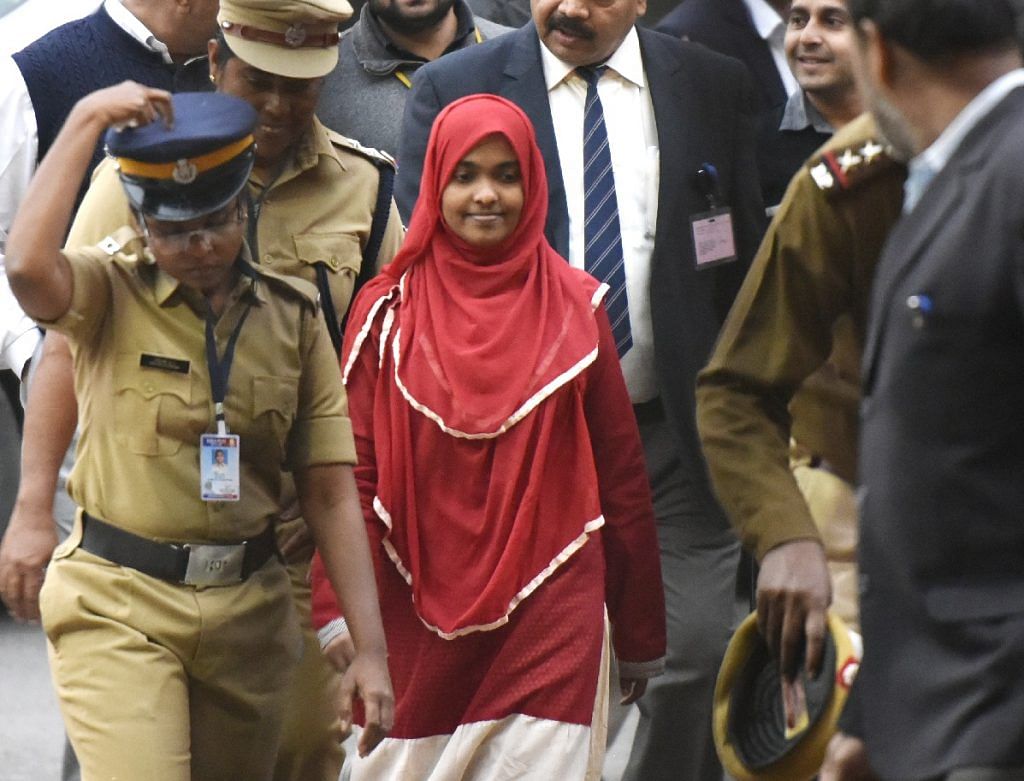The media continues to normalise a right-wing coinage and turn identities of marginalised people into click-bait commodities.
Nearly all of Indian media, from conservative to progressive-leaning news portals have all used the words ‘Love Jihad’ in their headlines while covering the case for Hadiya’s autonomy. Even those who do not mean for it to be perceived in its original Right-wing conception, by using quotation marks to say Kerala’s ‘Love Jihad’ case, are complicit in furthering a partisan political discourse.
The Kerala High Court has itself come out strongly against how interfaith marriage has been communalised under this term. We don’t say “inter-religious” or “interfaith marriage”, but instead go back to using that term. There were a thousand different ways to peg Hadiya’s story. Instead of ‘Kerala Woman’s Love Jihad Case’, this could have been headlined as ‘Grown Woman Married to Muslim Man Case’ or ‘State Intervening in 25-Year-Old’s Autonomy Case.’ That simple breakdown of words also reveals the way people’s lived experiences have been reduced to a hashtag or trendy traffic-getting catchphrases removed from context.
I myself wrote a piece about Padmavati and its caste essentialism and patriarchal archetypes. The headline, which has since been changed, also pegged it to the ‘Love Jihad’ subtext (still visible on social media).
Such headlines and captions are only part of a larger, structural problem. The urge for covering social issues through the lens of a ‘buzzword’ removed from its social and political context comes from seeing people’s identities and problems as news bytes with a sell-by date. In an age of increasingly consumerist, corporatised media mixed with a fast-churning 24×7 news-cycle, there is an impetus to give things peppy names. Election debates often use the lazy catchphrase of ‘Muslim vote’, reducing the realities and complexities of an entire community to a piecemeal question of vote bank.
Women’s long-fought struggles for rights are reduced to ‘gender debate’; identities of marginalised people are turned into click-bait commodities. It’s why we won’t say “Dalit, Bahujan and Adivasi people face institutional discrimination by Savarnas”, but at best say “#Dalits discriminated.”
As journalist Sudipto Mondal says, “Indian media wants Dalit news but not Dalit reporters.”
It bears noting that such catchphrases are rarely applied to news-issues which hold a lens to the dominant or powerful communities. For instance, turn the lens for a moment. How about describing Hadiya’s case as ‘Kerala Hindutva case’ instead of ‘Kerala Love Jihad case’?
This problem is not just that of the media, but of those voices that remain lesser represented in our courtrooms and institutions of power.
It is not different from the spectre of a Supreme Court bench of all-male judges ruling over a woman’s life. The reason our media continues to make editorial judgements that normalise a right-wing coinage, is because our industry (like the judiciary) is overwhelmingly Hindu and Savarna.
Despite being fields that often work or cover issues of rape culture and sexism or communalism — the law and media do not give space to employing people from these communities as equals, but use them as hashtags.
Terms such as ‘Love-Jihad’ or ‘anti-national’, are social and political constructs. They should be used in our parlance as such — as concepts to critique, satirise, and subvert and thereby the defang the original meaning. Its use as value-neutral terms for the media’s headlines on the other hand, normalises these concepts, which have been the figments of saffron imagination.
Sometimes quotation marks are not enough. Instead of saying ‘Kerala Love Jihad’, or ‘reportedly anti-national remark’, why not laugh at this very idea of anti-national or the Indian Hindu male’s fragility— which led to the outrage that coined a term like ‘Love-Jihad’ in the very first place?
